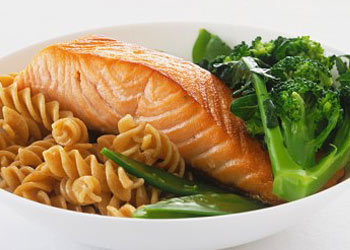more>>More News
- National Day
- ways to integrate into Chinese style life
- Should they be in the same university with me?!!
- Chinese Ping Pang Legend: the Sun Will Never Set
- A Glance of those Funny University Associations
- mahjong----The game of a brand new sexy
- Magpie Festival
- Park Shares Zongzi for Dragon Boat Festival
- Yue Fei —— Great Hero
- Mei Lanfang——Master of Peking Opera
11 Brain Boosters
By admin on 2014-12-12

While there is no fountain of youth for the brain, neuroscience provides evidence for the next best thing. There are lots of things you can do right now to preserve, protect and enhance your gray matter. One hint: If you’re already a devotee of a heart-healthy lifestyle, you’re way ahead of the game. What’s good for the heart is probably good for your head. That’s twice the motivation and payoff.
Foods for thought—and memory. We are what we eat, the
old adage goes. When it comes to brain fitness, eating certain types of food can
improve and preserve our sharp-as-a-tack selves.
The strategy: Keep unhealthy fats to a minimum (no more than 20 percent of calories). Sticking to a Mediterranean style diet—lots of fresh fruits and vegetables, a minimum of red meat, plenty of fish, daily wine—is paramount.
Research shows cellular stress caused by oxidation can lead to cognitive declines. Choose dark-colored fruits and vegetables, including apricots, cantaloupes, watermelon, mangos, kale, chard, spinach and broccoli. Eating these foods increases the production of acetylcholine, a vital chemical released from nerve cells that improves communication between cells.
Salmon, mackerel, tuna, sardines and herring also give your brain a boost. What’s key about these types of fish is their omega-3 fatty acids, specifically one called DHA, which is an essential component of neural cell membranes that helps to transmit information into and out of those membranes.
Brains are made up of about 60 percent fat, but the fuel they rely on is
glucose, a simple sugar. To give your brain ample energy, eat complex
carbohydrates such as brown rice, bulgur, quinoa, whole wheat pasta and
couscous. Whole grains are superior because they break down more slowly and
don’t cause big upswings in insulin production, which can cause a number of
health problems associated with poor mental performance.
- Contact Us
-
Tel:
0086-571-88165708
0086-571-88165512E-mail:
admission@cuecc.com
- About Us
- Who We Are What we do Why CUECC How to Apply
- Address
- Study in China TESOL in China
Hangzhou Jiaoyu Science and Technology Co.LTD.
Copyright 2003-2024, All rights reserved




 Chinese
Chinese
 English
English
 Korean
Korean
 Japanese
Japanese
 French
French
 Russian
Russian
 Vietnamese
Vietnamese
